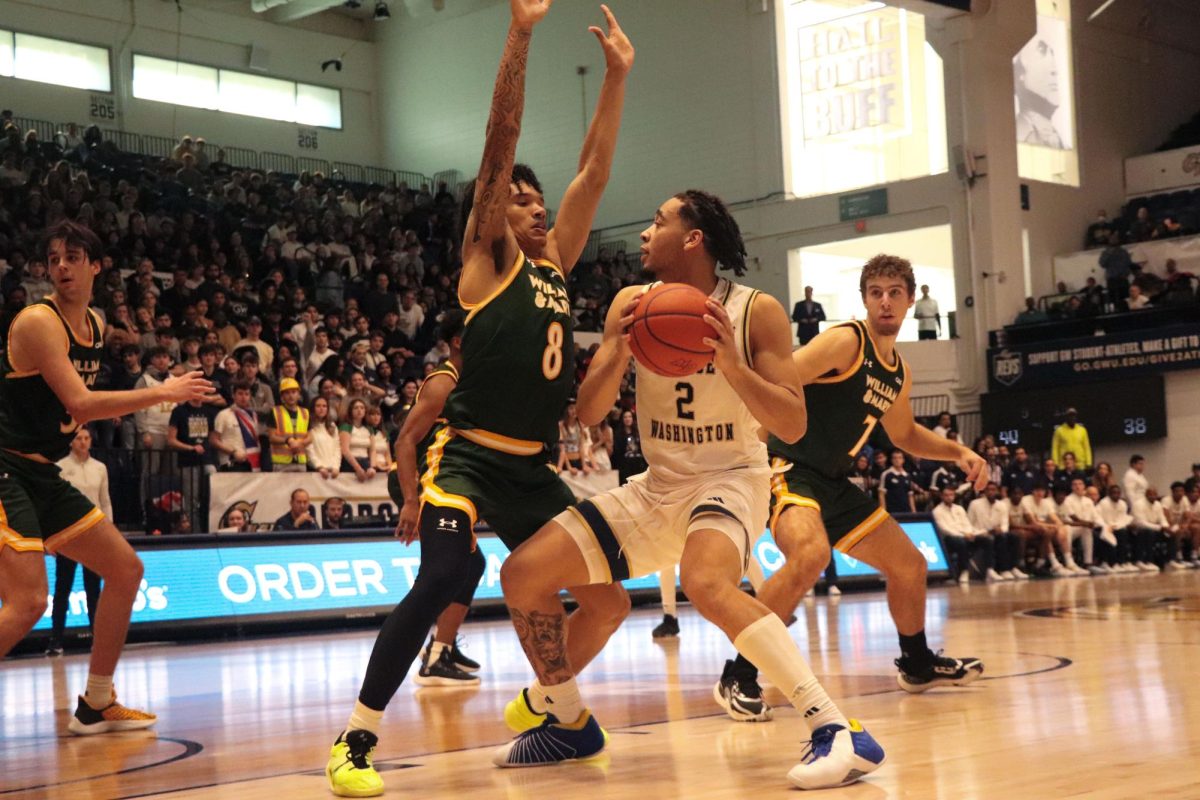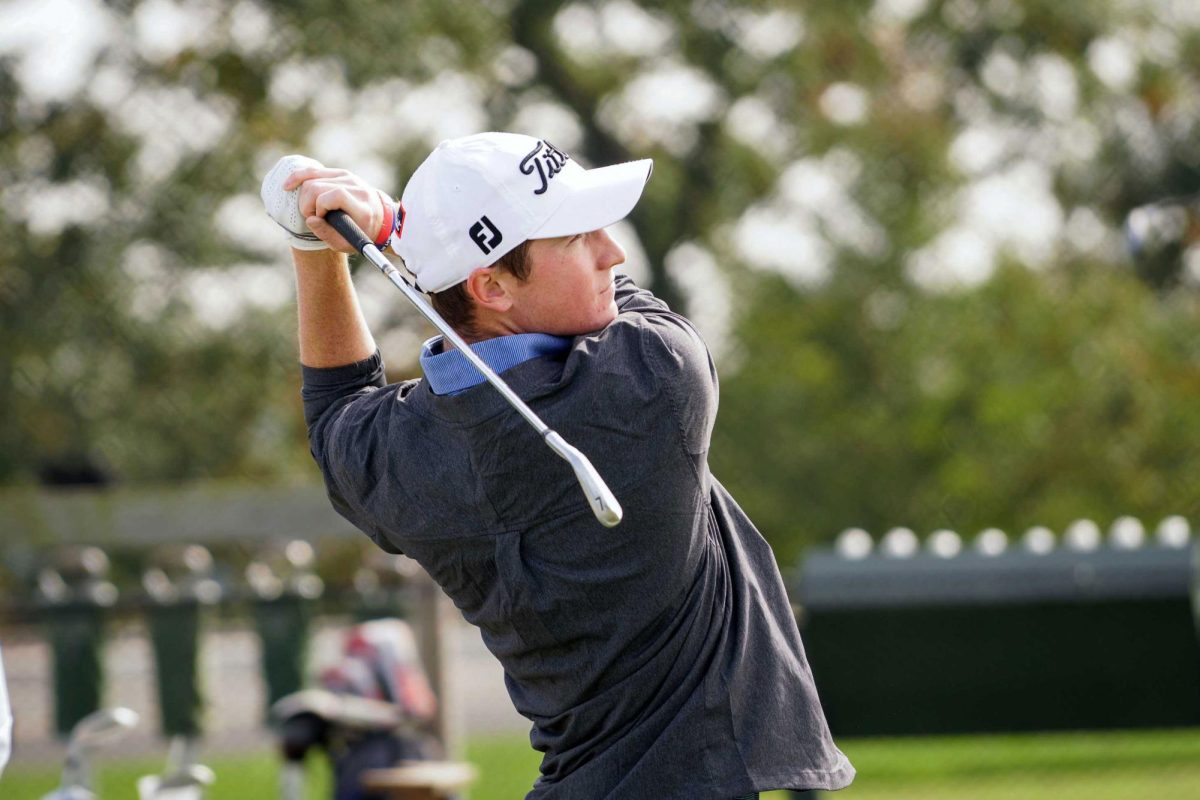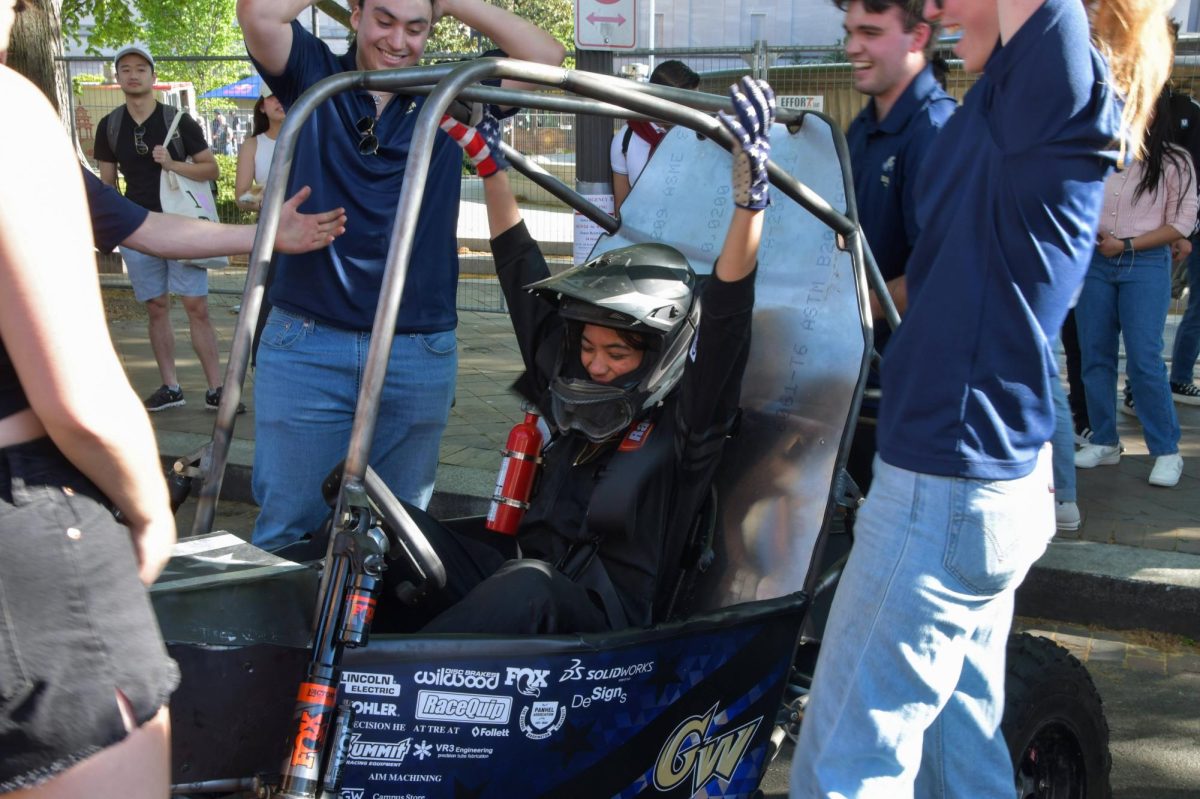Ardent followers of GW’s men’s basketball team may have thought they were experiencing déj? vu during the Colonials’ 76-53 loss to Maryland Sunday at the Verizon Center.
The Terrapins moved the ball around the perimeter with purpose and precision from the opening tip, leading to a series of unguarded three-pointers that gave Maryland an early and insurmountable lead.
Fans who thought the strategy looked familiar would be right: Vanderbilt did the same thing during its 77-44 throttling of the Colonials in the 2007 NCAA Tournament.
In both games, the disparity between GW and its opponents was obvious every time the ball changed hands. When GW was in possession, it passively went through the motions of offensive sets before inevitably forcing a pass or settling for a low-percentage jump shot. When the ball switched teams, the Terrapins stuck to their plan, establishing a rhythm as the game progressed.
GW never established a rhythm. One could chalk that up to going up against an opponent which recently beat the fifth-ranked team in the nation, but that would be only half the story. Instead, it may be time for head coach Karl Hobbs to abandon the fast-subbing, short-leash style he is known for.
The style works against lower-tier opponents because the Colonials’ athleticism is too much for other teams to handle. But against better teams, GW needs more than just athleticism; it needs to execute. Moreover, games against teams like Maryland are when Hobbs might benefit from playing his seven best players and giving them breathing room.
Hobbs frequently takes players out of the game for fundamental mistakes like forgetting to box out or missing a defensive assignment. He does it as a type of negative reinforcement or so he can explain the mistake to them. Either way, it prevents players from correcting their mistakes immediately.
When they re-enter the game, players have to get a feel for what is going on on the court all over again. Inevitably, the team’s play suffers as a result, just as a band’s performance would stutter if its guitarist and drummer were replaced between every song,
Against the Terrapins, a squad suffering from a dearth of inside presences, GW’s best player Rob Diggs played just 22 minutes – barely more than half the game – and 10 GW players played double-digit minutes. Had Diggs been allowed to figure out what works best against the Terrapins’ forwards through trial and error, he may have been able to keep his team in the game. As it was, he never established himself in the post and had just five rebounds, well below his season average.
It could be that Maryland really was that much better than GW and there was nothing Hobbs or any player could have done to keep the game close. But had a core group of players taken their licking together on the court, they may have been able to learn together and prevent it from happening the next time they play a team of the Terrapins’ caliber.







